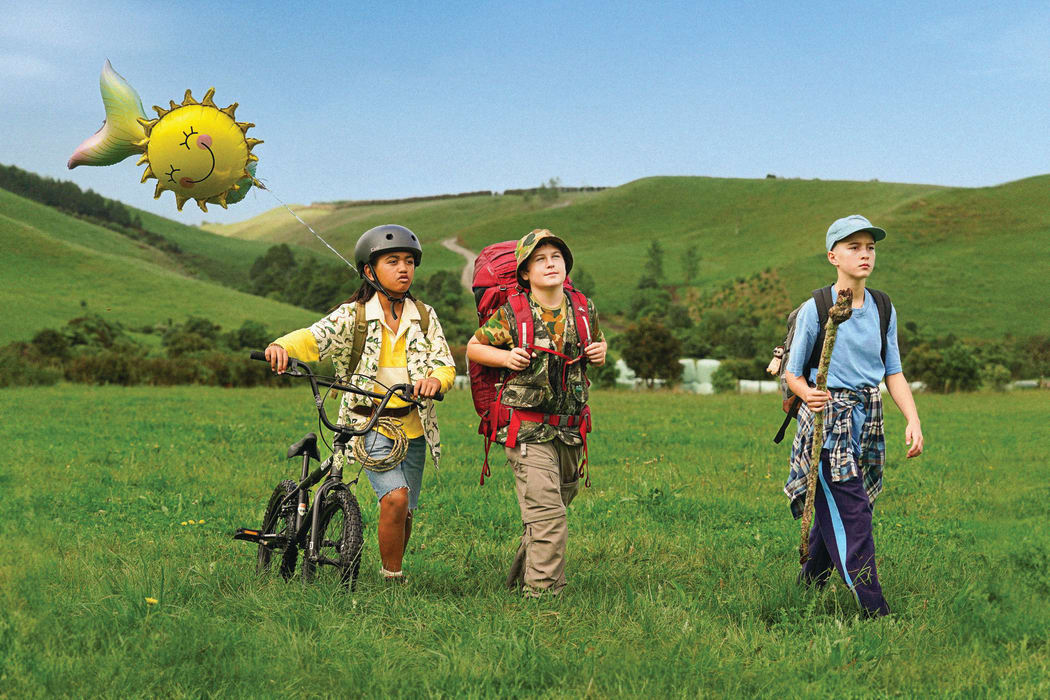
Rachel House’s film The Mountain is screening at the 2024 Māoriland Film Festival. Photo: Māoriland Film Festival
Growing steadily since the first edition in 2014, the Māoriland Film Festival is on course to become the screen equivalent of WOMAD – an annual celebration of world culture that attracts artists and audiences from all over the globe.
Most mainstream film festivals are simply collections of screenings. Audiences gather, you might recognise someone from previous screenings across the foyer, but you file in and sit quietly as the lights go down. The next night, if you are lucky, you get to do it again. Māoriland isn’t like that. It’s a five-day celebration and there’s plenty of occupy you over and above the screening programme.
From the Pōwhiri and keynote speech on day one, through to industry breakfasts and other collaborative events, to a final night red carpet party, the festival is a chance for indigenous filmmakers from all over the world to make connections, share experiences and grow their practice. The vibe is palpable – and the kaupapa is essential if we are to resist international corporate domination of our screen culture.
I was offered a small sampler of the many films on offer, and I went looking for some themes that could apply to this year’s festival.
The Reciprocity Project
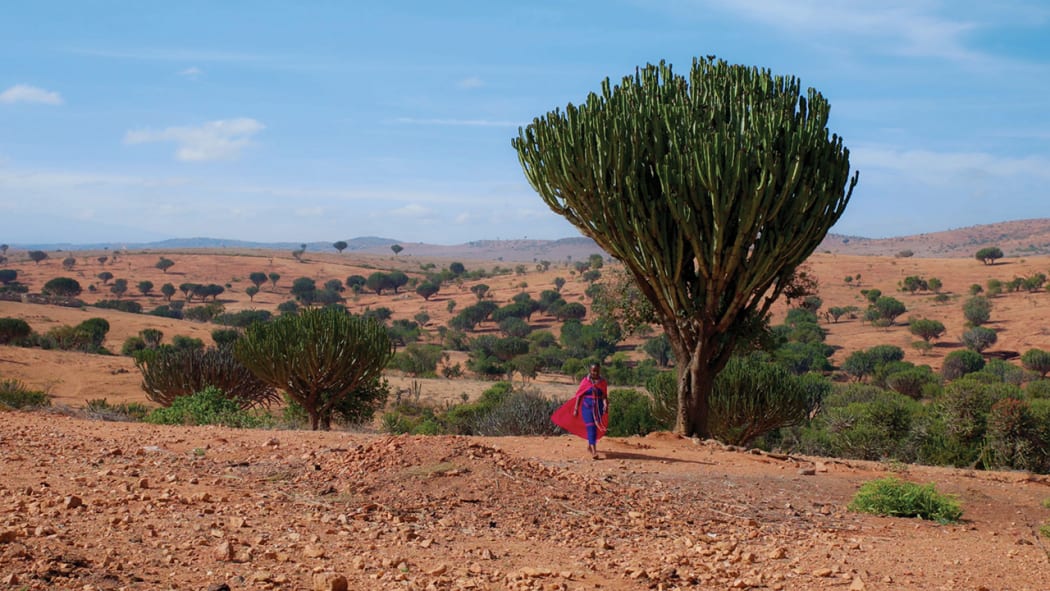
Still from the short documentary film Enchukunoto (The Return). Photo: Māoriland Film Festival
The opening night programme is a collection of seven shorts that make up a (second) season of films in which fresh and emerging filmmakers use their own indigenous cultural relationships as a lens to view environmental change.
At least that’s the theory. For the three shorts I saw, the environment was a given rather than something to be focused on, defended or campaigned for. These films were from indigenous storytellers who had grown up displaced from their culture, returning to homelands and sensing the impending loss of old knowledge.
In Enchukunoto (The Return), Laissa Malih (the first female Maasai filmmaker) goes back to the village her parents had left before she was born. Contrasting the lived reality of those who have remained with the tourist images that sustain them, she is surprised that the male elders will even talk to her, let alone drink and tell jokes. On one level this feels like progress but at the same time she wonders what generational experience is being lost as old cultural norms fall by the wayside.
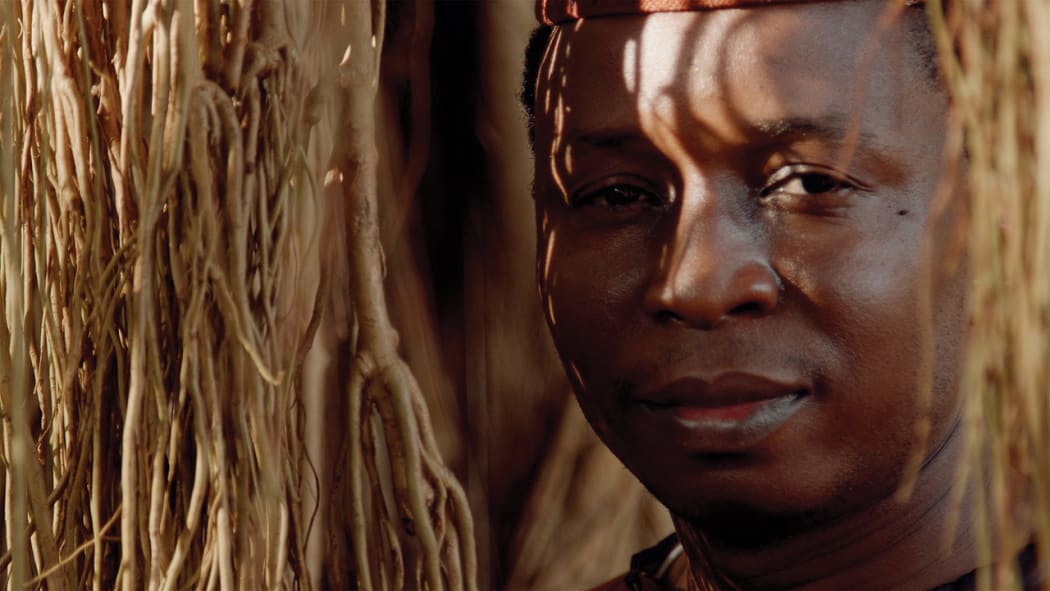
Still from the short documentary Ma ŋaye ka Masaala a se ka Wɔmɛti (From God to Man). Photo: Māoriland Film Festival
Then we travelled from Kenya to Sierra Leone and Ma ŋaye ka Masaala a se ka Wɔmɛti (From God to Man), another documentary featuring a filmmaker going home, this time to the Limba tribe of his ancestors. Lansana Masaray is an established documentary maker but is embarrassed at the poor quality of his language – the locals call him “city Limba man” – and he is concerned that the government is allowing too much deforestation, threatening the sacred trees that carry the spirit of the people as well as the palm wine that they treasure.
There’s another kind of wine at the centre of Tayal Forest Club, a drama rather than a documentary this time, in which two Tayal boys go into the rainforest to make an offering of rice wine to the ancestors but, without guidance from their elders, make a bit of a hash of it. The Tayal are the indigenous people of the island of Taiwan and, to my embarrassment, before this film I didn’t even know that they existed.
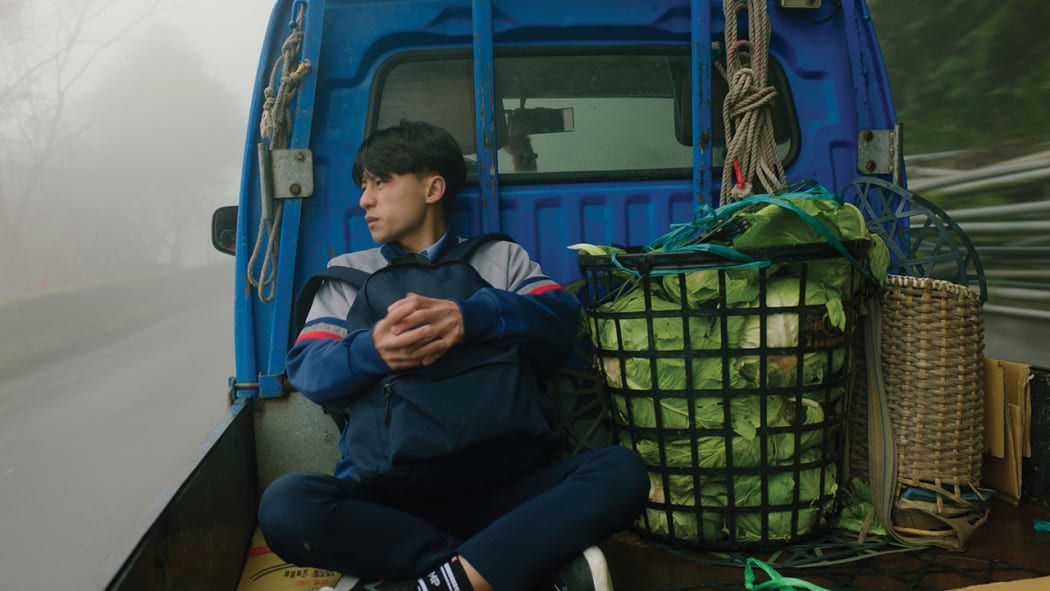
Still from the short drama film Tayal Forest Club. Photo: Māoriland Film Festival
All three of these films are about the loss of indigenous knowledge – some of it superstition or mysticism, but plenty of it essential to a harmonious existence in harsh conditions. As young people become alienated from their culture, because of geographical dislocation or through the overwhelming influence of modern life, key connections to the earth are being lost.
Lea Tupu’anga / Mother Tongue
Fifty-six of the 168 titles in the festival originate in Aotearoa New Zealand. Vea Mafile’o’s short film is about a young health worker of Tongan descent (Luciane Buchanan, also the screenwriter) who has lied about her Tongan language skills in order to work with an elderly man who has no English.
The lie traps her every which way as he resists her attempts to help him – neither understands the other – and her bosses demand results. Eventually, connections are made but, once again, the loss of elder knowledge casts young people adrift from their culture.
Lea Tupu’anga plays in the Koroki Koroka strand of the festival on Friday morning, with four other films from around the world, centred around the topic of language.
Frybread Face & Me
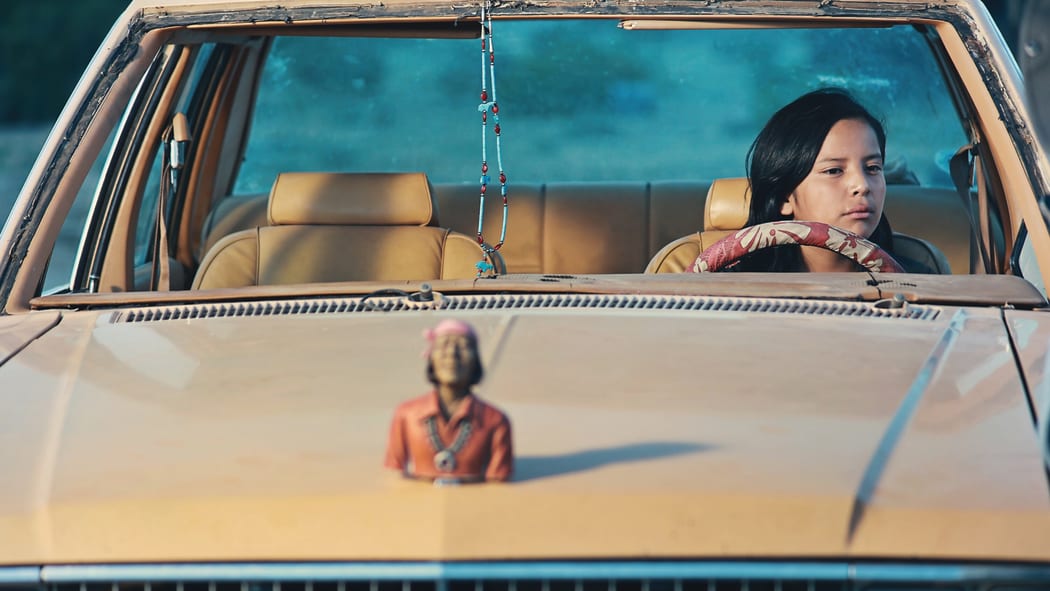
Still from the 2023 Navajo feature film Frybread Face and Me. Photo: Māoriland Film Festival
Watching a preview of the closing night film, I couldn’t help but think that it was a synthesis of the films that I’d been watching previously, and at the same time a confident statement of commercial potential for indigenous filmmaking. Movies like Tongan brass band comedy Red, White & Brass – a free whānau screening at this festival – have proved that in our context and I expect Rachel House’s forthcoming The Mountain – receiving a special screening on Thursday – will do the same when it hits cinemas next week.
Frybread Face & Me is an autobiographical story with an early-90s setting as a young Navajo boy is sent back to the “res” for a summer while his mother works out some painful relationship challenges.
Young Benny (Keir Tallman) doesn’t want to leave San Diego as he has his heart set on a Fleetwood Mac concert, but as these things tend to go, he finds that life with a grandma who only speaks Navajo (Sarah H. Natani) and a cousin nicknamed “Frybread Face” (Charley Hogan) isn’t all that bad. The elders have something important to say, even if it isn’t in English.
Writer-director Billy Luther wrote for the Navajo detective drama Dark Winds (reviewed in these pages) and there are a few familiar faces in front of the camera from that and other Native American shows. It’s an entertaining coming-of-age story that doesn’t shy away from the struggles of reservation life.
The Māoriland Film Festival takes place in venues all over Ōtaki, from 20 to 24 March.

